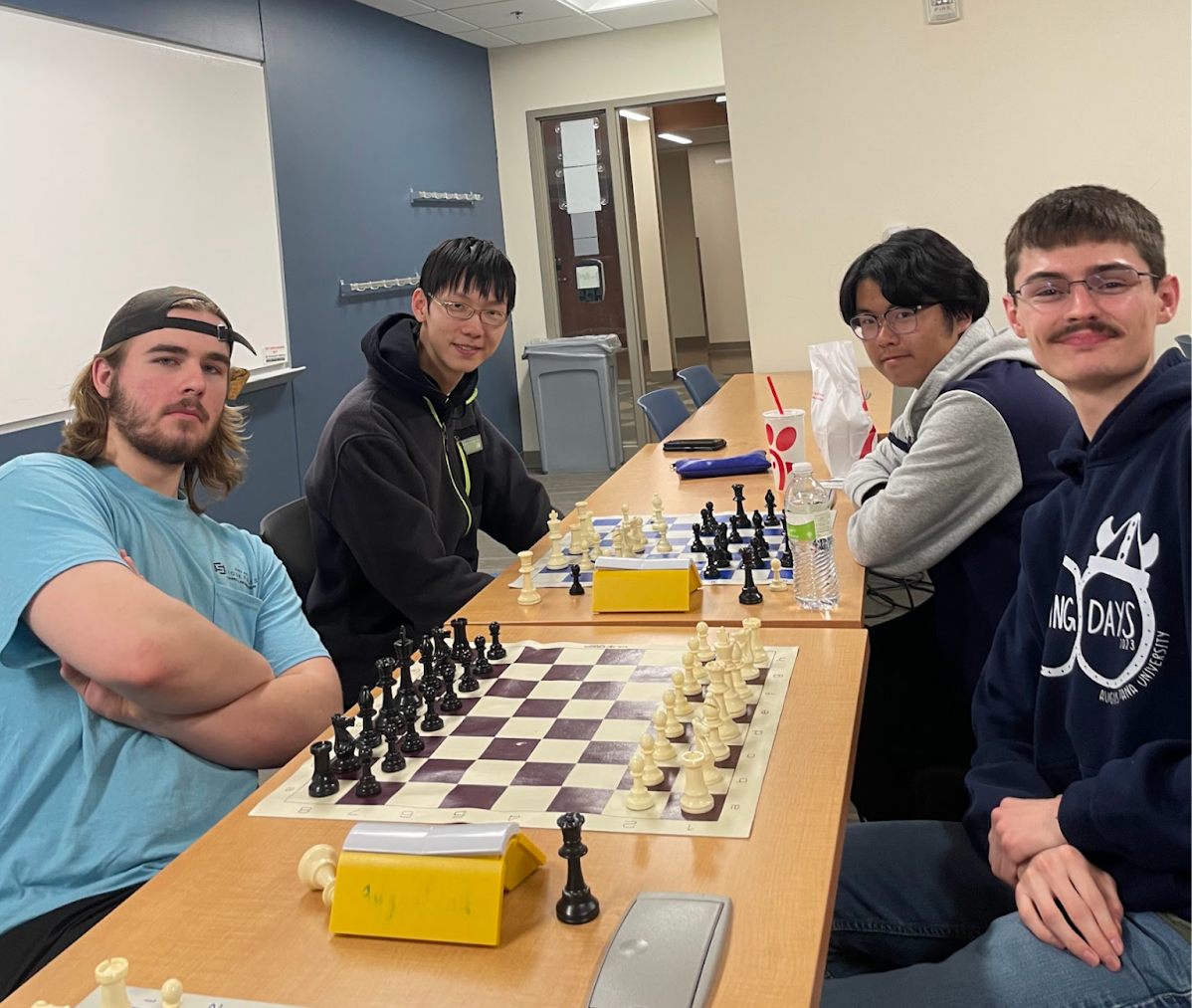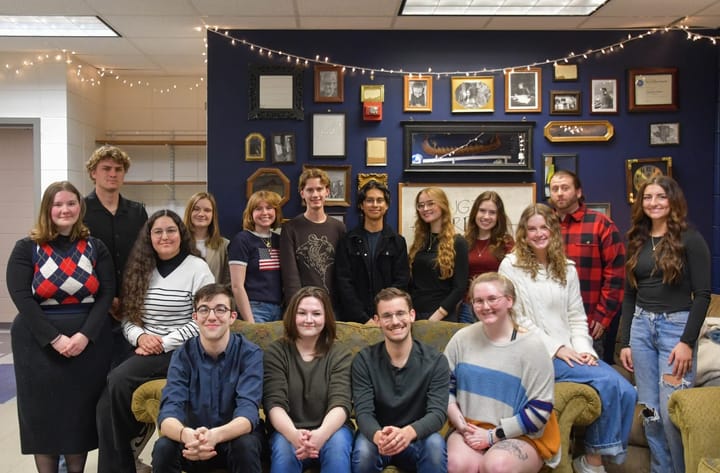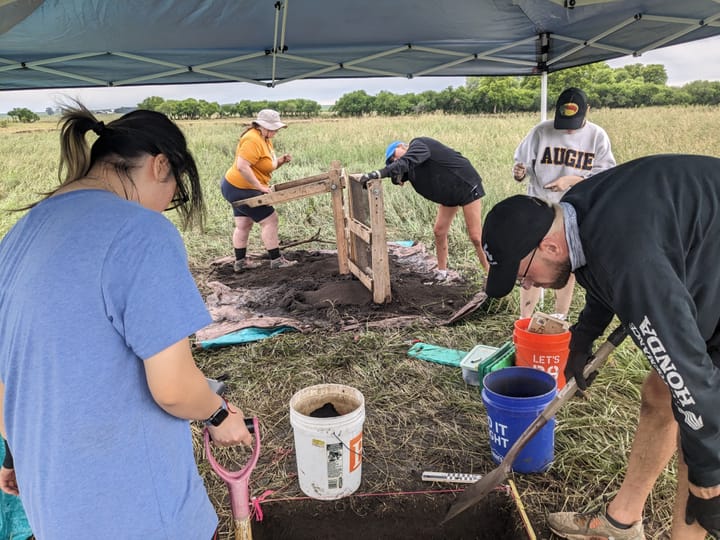Chess club inspires focus, resilience

It’s 6:55 on a Thursday spring evening. Senior biochemistry major Gabe Smith transports a large, midnight-blue box. Smith, while holding this mysterious item against the wooden classroom door, simultaneously attempts to unlock room 371 in the Froiland Science Center with shaky hands.
The contents inside Smith’s box, locked with a latched lid, are unknown.
He enters the small, barren classroom. Black and blue chairs are scattered throughout the room, each one shining with silver legs. Five open and thin horizontal slits appear on the back of every chair, allowing them to breathe.
Like a man on a mission, Smith starts unveiling the items from the box.
Smith removes about six yellow chess clocks, each with a white button on their top, and sets them on the tables closest to the door — a door that remains open during every chess meet.
Smith is one of the co-president’s of Augustana’s chess club.
Chess offers players resilience and focus that turns one’s brain back on.
Just as setbacks in everyday life force a person to come back stronger, pawns in chess contain the least amount of value and power; despite being the smallest and weakest pieces, pawns are placed on the front lines of a chess board and have to deploy into battle first. If execution from a player persists correctly, only pawns have the ability to transform into additional queens, the most powerful piece in the game.
The hands on the wall clock now read 7:08 p.m., and junior theatre major Vaughn Schneider accidentally stumbles through the portal to Augustana’s chess club.
Schneider, with a well-maintained beard, wears a sky-blue T-shirt, black shorts and a black hat backward over long shoulder-length brown hair. Out of curiosity, Schneider stays captivated at the threshold, swearing like a sailor throughout his initial pleasantries.
Schneider asks Smith, “We have one of those?” referring to Augusana’s chess club. Smith smiles widely and provides Schneider with an obvious and clear yes, while warmly welcoming Schneider inside the classroom. As their first chess match begins, small pawns clatter on the cheap, paper chess boards.
Smith and Schneider crave this positive outlet. Chess at the end of the school day helps both men mentally and physically.
“When I do a bit of work, I’ll go on Chess.com as a de-stressor outside of class or in between classes,” Smith said. “After I play some chess games, I can lock back in. It helps wake you up, I would say.”
At about 7:15 p.m., junior math major Tianyi Lu arrives, patiently waiting for an opponent. About five minutes later, Matthew Li, a freshman math major, walks into the classroom carrying a Chick-fil-A bag. Instantly, the two math majors sit down on opposite sides of a board and begin to play.
“I learned how to first play chess in China when I was in primary school by a professional chess teacher,” Lu stated. “They teach all over China, but I stopped playing in middle school before starting back up again a little bit later.”
As the evening progresses, the noise and laughter from the four students playing chess diminishes. Smith wins the first two games with Schneider, and Lu and Li, a draw. Eyes widen, and bodies move closer to the boards. Everyone is awake and focused.
On a good day, the chess club only has about five to six people that show up.
“We are hoping to get flyers put up on the university’s TV’s, and maybe some funding from the Augustana Student Association,” Smith said.
Smith also said that the club would use some of the money from ASA for tournaments and a prize fund.
Lu was the chess club's first official tournament winner last spring. Now, Smith and junior computer science major Tyler Safranski, co-president of Augustana’s chess club, are planning a tournament for either April or May of 2025.
For some players, chess is one thing amongst the chaos of school that they can control.
“You feel like you’re in control and you kind of decide your own fate,” Smith said. “You’re at absolute rock bottom, but somehow, you’re able to claw your way back. I definitely think there’s some life lessons in chess.”
The chess club meets in FSC 371 on Thursdays from 7:00 p.m. until 8:00 p.m., and all are welcome.
It is now 8:10 in the evening. Smith and Schneider are the last ones remaining. The pair are eager to play another game, regardless of the time.



